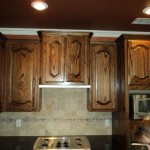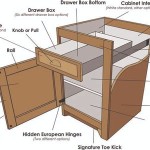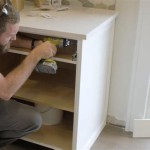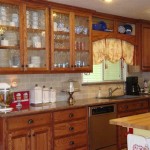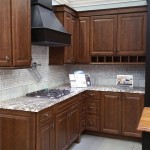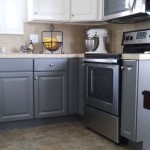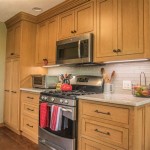How To Add Lights Inside Kitchen Cabinets
Kitchen cabinets are an essential feature of any kitchen, providing storage space for cookware, food, and other items. However, dark cabinets can make it difficult to see what's inside, especially in the back. Adding lights inside your kitchen cabinets can help solve this problem, making it easier to find what you need and create a more inviting atmosphere in your kitchen.
Planning Your Lighting System
Before you start adding lights to your kitchen cabinets, it's essential to plan your lighting system. This includes determining the type of lights you want to use, the placement of the lights, and the power source. Here are some things to consider when planning your lighting system:
Type of Lights: There are many different types of lights available for use in kitchen cabinets, including LED strips, puck lights, and under-cabinet lights. Each type of light has advantages and disadvantages, so choosing the right one for your needs is essential.
Placement of Lights: The placement of your lights will depend on the size and layout of your kitchen cabinets. You'll want to position the lights to provide adequate illumination without creating glare or shadows.
Power Source: You'll also need to decide how you want to power your cabinet lights. You can choose between hardwired lights, which require electrical wiring, or battery-operated lights, which are more portable but require batteries.
Installing the Lights
Once you've planned your lighting system, you can begin installing the lights. The installation process will vary depending on the type of lights you've chosen. Here are some general steps to follow:
Turn off the power: Before you begin working on your electrical system, turn off the power to the kitchen.
Mark the placement of the lights: Use a pencil to mark the placement of the lights on the inside of your cabinets.
Drill pilot holes: Drill pilot holes for the screws that will hold the lights in place.
Install the lights: Mount the lights in the pilot holes and secure them with screws.
Connect the lights: If you're using hardwired lights, connect them to the electrical wiring. If you're using battery-operated lights, insert the batteries.
Turn on the power: Turn the power back on and test the lights to ensure they're working correctly.
Tips for Adding Lights to Kitchen Cabinets
Here are a few tips for adding lights to kitchen cabinets:
Use LED lights: LED lights are the most energy-efficient type of light, and they can last for up to 50,000 hours. They also produce very little heat, so they're safe to use in enclosed spaces like kitchen cabinets.
Install dimmers: Dimmers allow you to control the brightness of your cabinet lights, which can be helpful for creating different moods in your kitchen.
Add motion sensors: Motion sensors can turn on your cabinet lights automatically when you open the door, making it easier to find what you need.
Be careful not to overload the electrical system: Adding too many lights to your kitchen cabinets can overload the electrical system. If you're not sure how many lights you can add, consult an electrician.
Adding lights to your kitchen cabinets can be a great way to improve the functionality and aesthetics of your kitchen. By following these tips, you can easily install a lighting system that will meet your needs.

How To Install Kitchen Cabinet Lighting The Honeycomb Home

In Cabinet Lighting How To Add Life Your Kitchen Cabinets Bauscher Construction

How To Install Under Cabinet Lighting In Your Kitchen Diy

How To Install Kitchen Cabinet Lighting The Honeycomb Home

Installing Your Own Under Cabinet Lighting Young House Love

How To Install Kitchen Cabinet Lighting The Honeycomb Home

How To Install Under Cabinet Lighting In The Kitchen Using Led Light Strips

How To Choose And Install Led Strip Lights For Kitchen Cabinets

Best Inside Cabinet Lighting Options For Kitchens

Under Cabinet Kitchen Lighting Pictures Ideas From












